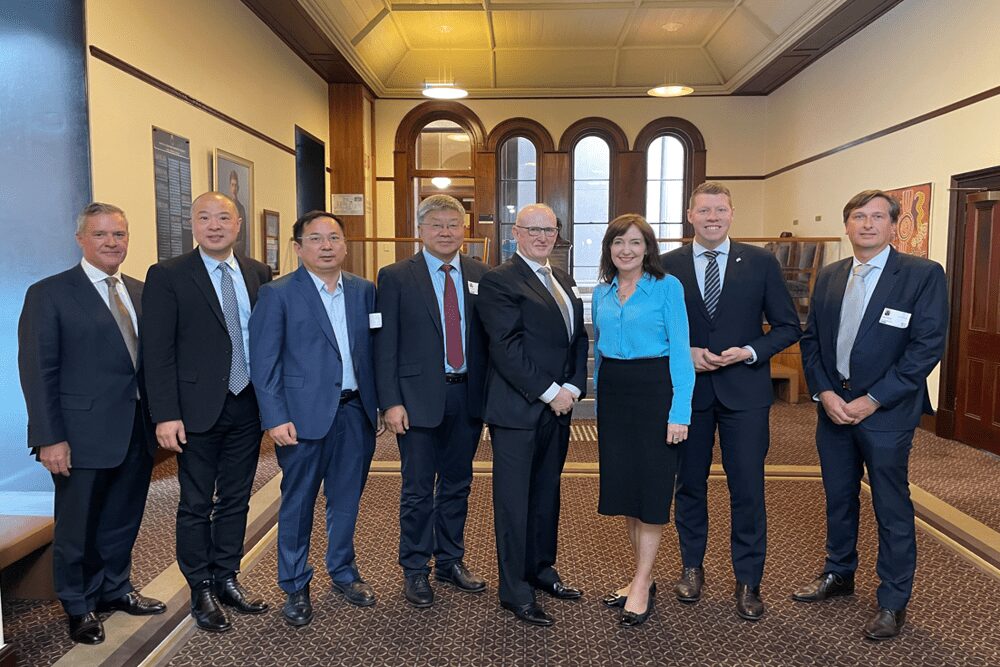
A research consortium led by UNSW Sydney will investigate the potential to grow a new industry that will use cheap excess renewable energy to make fuel, chemicals and feedstocks to power a range of infrastructure in New South Wales (NSW).
Scientia Professor Rose Amal from the School of Chemical Engineering will lead a team to undertake a roadmap exercise NSW Power-to-X (P2X) Industry Feasibility Study, which will assess and develop opportunities for decarbonisation and growing local manufacturing capabilities. The work will be carried out with support from the NSW Office of the Chief Scientist & Engineer.
P2X refers to energy conversion technologies that can be used to store power surpluses from renewable energy sources as chemical energy.
P2X technologies can be used to produce clean fuels and chemicals such as hydrogen, ammonia, methane and many other derivatives, and is far less capital intensive than alternatives such as battery storage.
Professor Amal is recognised as a pioneer and leading authority in the fields of fine particle technology, photocatalysis and functional nanomaterials, all integral to P2X technologies. She said these processes are energy-intensive, therefore cheap renewable electricity will help to drive down their costs.
“NSW has untapped renewable energy potential that presents excellent opportunities to build a P2X industry at scale – to meet domestic and export demand for green energy,” Professor Amal said.
“P2X offers opportunities for deep decarbonisation for hard-to-abate industries, regional development and investment attraction, as well as exporting renewable energy to overseas markets via hydrogen carriers.”
She detailed that countries such as Germany, Japan and South Korea are already seeking partners and locations in Australia for renewable hydrogen production, to export to their respective countries.
“NSW has all the ingredients required for a future hydrogen economy and a rare opportunity to lead the P2X development. But we must act urgently and invest in the technology and start building capabilities now, to ensure we capture this enormous opportunity for our state and our country.”
The NSW Government identified hydrogen as a priority technology to decarbonise industries, create jobs and grow the economy in its Decarbonisation Innovation Study 2019 and Industry Opportunities: Enabled by Cheap, Clean and Reliable Electricity under the NSW Electricity Infrastructure Investment Roadmap 2020.
At the heart of most P2X processes is hydrogen production via electrolysis of water. This hydrogen can be used directly as a final product or to produce other clean fuels and chemicals through secondary conversion technologies.
NSW Chief Scientist & Engineer, Hugh Durrant-Whyte, said a P2X industry would accelerate the hydrogen economy in NSW, creating substantial economic value and environmental benefits.
“There is an existing demand for hydrogen and a growing market for other P2X products overseas, in NSW and across Australia,” Professor Durrant-Whyte commented.
“Transport, electricity and gas industries are also actively exploring P2X solutions to decarbonise processes and products in NSW.”
Professor Durrant-Whyte said a local P2X industry could play a major role in NSW’s target of net zero emissions by 2050 and create hundreds of jobs.
“We need immediate, targeted and coordinated investment in these technologies to meet our economic and moral obligations to decarbonise. I look forward to the outcomes of this project under Professor Amal’s leadership, which will help us to understand the next steps to realise this goal,” he said.
Scientia Professor Amal said her research consortium will include a core team of investigators from UNSW Sydney, University of Newcastle, University of Wollongong, University of Sydney and CSIRO. The work will also map and engage industry partners for their inputs in building the new P2X industry in NSW.











